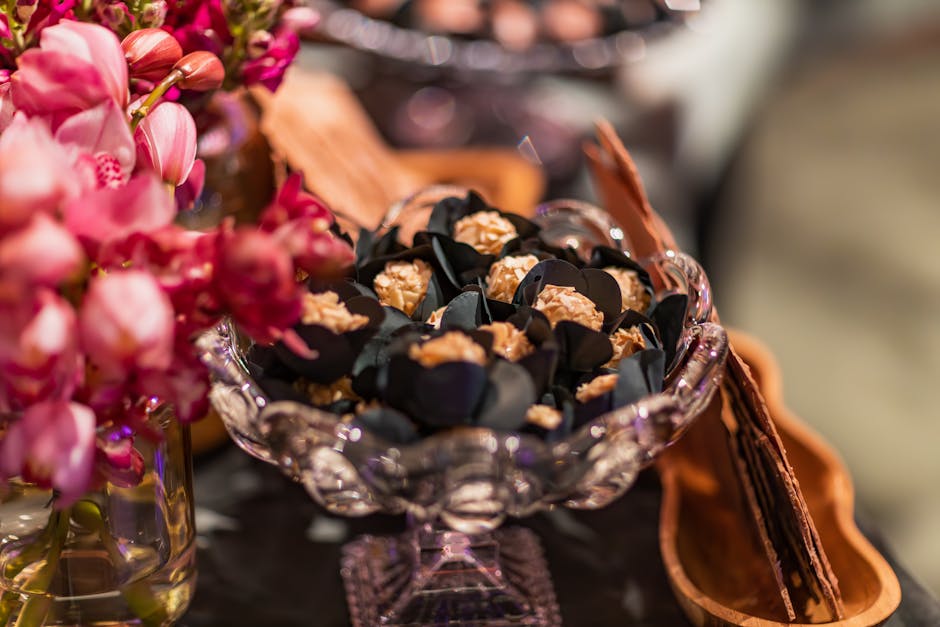As the crescent moon ushers in Ramadan, it brings with it a time of reflection, community, and the tradition of giving. Discover how sustainable luxury chocolate redefines the essence of Ramadan gifts, blending indulgence with ethical elegance.
The Significance of Ramadan and the Tradition of Giving
Ramadan, the holiest month in the Islamic calendar, is a profound period of fasting, prayer, and meditation. It fosters a unique spirit of community and compassion, encouraging Muslims around the globe to perform acts of generosity and charity. This tradition of giving, deeply embedded in the ethos of Ramadan, transcends mere exchange of gifts; it is a heartfelt expression of love, respect, and solidarity within the community.
Gift-giving during Ramadan isn’t just customary; it’s a reflection of the joy and the spirit of the season. Presents, often exchanged at iftar (the breaking of the fast) or during Eid al-Fitr (the festival marking the end of Ramadan), range from simple, handmade items to more lavish tokens of appreciation. Among these, chocolates have emerged as a favorite, cherished for their universal appeal.
Why Choose Sustainable Luxury Chocolate as Ramadan Gifts
Sustainable luxury chocolate stands apart as an ideal Ramadan gift for several compelling reasons. Firstly, it aligns with the growing consciousness towards ethical living and environmental stewardship, matching the values of reflection and responsibility that Ramadan promotes. The choice of sustainable chocolate echoes the holistic spirit of Ramadan, by bringing joy not only to the recipient but also respecting the planet and those who inhabit it.
Luxury chocolates, crafted with care from the finest ingredients, offer an unmatched sensory experience that elevates the act of giving. When these delicacies are also sustainable, they tell a story of commitment—to the preservation of the environment, to fair labor practices, and to supporting small-scale farmers. This narrative adds depth to your gift, transforming it into a meaningful symbol of shared values and high regard.
Moreover, the versatility of chocolate allows for a personalized gift that can cater to the varied tastes of your loved ones. From rich, dark chocolate for the connoisseur to creamy, milk chocolate delights for those with a sweeter palate, the options are both diverse and decadent. With elegantly designed packaging, these chocolates become an emblem of luxury, making each box a treasure trove of ethereal tastes and textures.
Selecting the Perfect Sustainable Chocolate Gift
Selecting the perfect sustainable luxury chocolate as a Ramadan gift involves considering a few key aspects. The first is the origin and sourcing of the ingredients. Look for chocolates that use cocoa from ethical, sustainable farms, which prioritize the welfare of both the land and the farmers. This transparency is often noted on the packaging or the chocolatier’s website, giving you insight into the responsible practices behind your chocolate.
Another aspect to consider is the type and quality of the chocolate. Premium chocolate is distinguished by its purity and the craft behind its creation. Artisan chocolatiers who handcraft their products often use traditional methods, which not only yield superior taste but also reduce the environmental footprint of production. Opting for these chocolates ensures your gift is both luxurious and environmentally conscious.
Lastly, presentation matters. Sustainable luxury chocolates often come in packaging that is both beautiful and eco-friendly, reflecting the thoughtfulness of your selection. Many brands now use recyclable or compostable materials, minimizing waste without compromising on aesthetic appeal. This careful consideration in packaging complements the spirit of Ramadan perfectly, adding a layer of thoughtfulness to your gift.
In the spirit of Ramadan, gifting sustainable luxury chocolate is more than a gesture of generosity; it’s a commitment to ethical indulgence and a celebration of tradition with a modern twist. As we share these refined delights, we engage not just in the giving of gifts, but in the sharing of values that honor the sanctity of the month.








